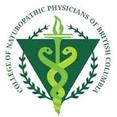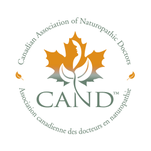Holism: The Mental, Emotional, and Physical Belong TogetherUnderstanding mental health requires recognizing the interconnectedness of the mind, emotions, and body. These elements do not exist in isolation but rather influence each other profoundly. Mental health encompasses not just cognitive processes but also emotional experiences and physical sensations. Recognizing this holistic perspective is crucial for comprehensive mental health care. One Affects the Other and They Are Not SeparateThe idea that mental, emotional, and physical health are interconnected underscores the importance of treating them as parts of a unified whole. Mental distress can manifest in physical symptoms, such as tension headaches or stomach aches, while physical illness can impact mood and cognitive function. This interplay highlights the need for integrated approaches to healthcare that address all aspects of a person's well-being. Most Physical Ailments Have Mental and Emotional Aspects and ConsiderationsIt's increasingly evident that many physical ailments have underlying mental and emotional components. Chronic conditions like hypertension or chronic pain often have roots in psychological factors such as stress or unresolved emotional trauma. Addressing these mental and emotional aspects can be essential as a part of effective treatment and management of physical health conditions. Diet Changes as the Simplest Example Are Very EmotionalThe relationship between diet and mental health is complex and multifaceted. Making changes to one's diet can evoke strong emotional responses, whether it's the joy of indulging in comfort foods or the anxiety of restricting certain foods. Understanding these emotional dynamics is crucial for supporting individuals in making sustainable and healthy dietary choices. Our Relationship to Food Is EmotionalFood is deeply intertwined with our emotions, cultural identity, and social connections. Eating can be a source of pleasure, comfort, and social bonding, but it can also trigger feelings of guilt, shame, or anxiety. Exploring and addressing these emotional aspects of food can be integral to fostering a healthy relationship with eating and promoting overall well-being. How Emotions Impact Our Digestion and Our Gut Is Very ImportantThe gut-brain connection highlights the bidirectional relationship between emotions and digestive health. Stress, anxiety, and other emotional states can influence gut function, leading to symptoms like bloating, abdominal discomfort, or changes in bowel habits. Recognizing and addressing these emotional influences can play a significant role in managing gastrointestinal disorders and promoting digestive wellness. Everyone Is Affected by Day to Day Stress and Stress Impacts the Development of Major Health ConditionsStress is an inevitable part of life, but its chronic or excessive presence can have profound effects on both mental and physical health. Persistent stress can contribute to the development or exacerbation of various health conditions, including cardiovascular disease, autoimmune disorders, and mental health disorders like anxiety and depression. Learning effective stress management techniques is essential for safeguarding overall health and well-being. Having Health Concerns Can Be Stressful and Having Someone Hear How Difficult That Is, Is HelpfulAcknowledging the emotional impact of health concerns is essential for providing compassionate and patient-centered care. Health challenges can evoke a range of emotions, including fear, frustration, and sadness. Having a supportive healthcare provider who listens attentively and validates these feelings can greatly alleviate distress and facilitate coping and resilience in the face of illness.
Digestive Health is Foundational To Overall Health
Digestive Issues Have So Many Connections
Researchers are looking into inflammation in the gut and why and how it causes disruption in our health. It seems when there is a disruption in the normal bacteria in our gut, our immune system can sometimes react, causing inflammation which can affect your health throughout your body, including your mental health. Did you know that there are just as many microbes in our body as living cells? It’s pretty amazing considering many used to think we need to purge our system of any bacteria, considering every type of bacteria dirty and bad rather than understanding that many form an integral part of being a healthy human! Chronic Disease & The Gut Many chronic health conditions have inflammatory involvement and mental health challenges which can be a good reason to start to work on your gut health. Chronic health conditions can often benefit from gut health improvement even if digestive issues might not be the primary reason you are seeking treatment. This is an area that is still being researched and there are other processes within the gut brain connection that are still being discovered. Nonetheless, many healthcare practitioners, especially if they practice holistically, have been seeing the system-wide benefits of treating the gut even before the science catches up. How To Work With Me
If this information resonates with you and you’d like to work with me to get your gut health back on track contact me here to apply to be a patient at my clinic. Doctors Should Believe Their Patients
Common Women's Health Conditions This is not an exhaustive list but here is a list of a few common issues that often get minimized or overlooked that often have a variety of options for treatment. If you or your loved one is suffering from any of the conditions listed below, there is a possibly a holistic perspective and treatment plan could improve symptoms and overall health. Menstrual issues Menstrual issues are common but not normal. In today’s world there are so many factors that can disrupt our hormones and throw us off balance. Signs of hormonal imbalances related to menstruation involve having irregular periods, no period, premenstrual mood changes, cramping, bloating, nausea, vomiting, breast tenderness, or excessive, heavy, or consistent bleeding. Thankfully help is available beyond just birth control. Having extreme symptoms past minor cramping is something that needs to be looked at and wanting help with any symptoms is not silly or frivolous and not something you just have to suck up. Endometriosis Endometriosis is an incredibly painful, complex, and debilitating condition. Due to bias in healthcare, diagnosis regularly takes several years. This lack of urgency in diagnosing endometriosis severely impacts the patient, leading to life-altering debilitating symptoms, worsening of the condition that might have been more easily treatable if caught earlier, erosion of the quality of the patient's life, and considerable exacerbation of mental health challenges such as but not limited to anxiety and mood symptoms. Endometriosis lends well to a holistic approach because an individualized treatment plan seems to be the most effective approach to managing symptoms. PCOS (Polycystic Ovarian Syndrome) PCOS (Polycystic Ovarian Syndrome) can be a tough condition to get treatment options for but there are many holistic approaches. So much is unknown about PCOS, we are still learning about it. As more research is starting to be conducted on women’s health there is hope that we will have some clearer answers and even more treatment options. PCOS is a very common condition and many women suffer from and it is commonly a condition that runs in families. Menopause Menopause is unfortunately often still a taboo subject that many women feel they have to suffer in silence. Older women who have gone through menopause but still have symptoms that linger often don’t discuss the challenging symptoms they face for fear of being dismissed or minimized. This is unfortunate because there are a lot of holistic treatment options that can really help! Mental Health & Hormones Hormone health and mental health are related, treatment of one often affects change on the other. Conditions that have a challenging mental health component like PMDD (premenstrual dysphoria disorder) are often dismissed but PMDD is a real condition that can be very extreme and disruptive to quality of life. Many women are not aware of the condition and if they are lucky enough to identify they have it they often have to face the challenge of finding a healthcare professional that believes the condition exists at all. How to Work With Me
There are so many many hormonal conditions that seem to respond really well to holistic treatment options. I love working on hormonal conditions because there are so many treatment options available and I can tailor a specific treatment plan with each person, which often is most effective. If your condition is not listed and you would like to get an idea of your options or you see your condition here and would like to learn about more treatment options you can apply to be a patient by clicking here. Changes Sometimes Feel IntimidatingIf you find treatments such as habit, and nutrition changes way too hard or too intimidating did you know that you are very much not alone!? This might sound strange to you but I love it when patients come to me and let me know if they are struggling with diet changes or whatever treatment they are working on. It means I can help them take smaller bite sizes that seem more approachable or try different treatment options until you find one that is a good fit for you. It's counterproductive to feel constantly like you are failing or not doing the treatment so it's really important that each treatment plan is highly individualized to your unique needs and real life circumstances. Improving health can feel really intimidating or challenging sometimes, this is why people are more successful making these changes with support like counselling. I practice Mind Body Spirit medicine which means how you feel about a treatment is just as important as the treatment itself. Knowing your health practitioner has your back can make something like a diet change that feels impossible a little easier when you know you have someone in your corner ready and looking forward to collaborating with you. In fact, bringing in your emotional struggles is usually part of the healing process. A Good Fit A good fit in a healthcare practitioner is important, it can mean the difference of being able to keep up a treatment plan or feeling defeated. If you are currently working with someone and feel like you are needing some adjustments and your practitioner isn’t willing or able to help you through it then it might be a good time to find someone with a better fit! Before you leave though, make sure you let them know that you are struggling. Some practitioners are unaware that you need help. Be specific in where you are struggling and ask them directly and clearly for adjustments or help figuring out adjustments to make it more manageable. If you are looking for a healthcare practitioner it’s always a good idea to take a consultation or meet and greet option if they have it, and a good question to ask them is “What happens if the treatment feels too hard for me? How do you manage that with a patient?” Working With MeIf this resonates with you and you would like to work with me then click here and check out how to apply to become a patient at Butterfly Naturopathic. When the seasons start turning there are many celebrations and traditions that bring family together. Here is a quick guide to help you to start to recognize what you need to feel empowered to regenerate this winter along with the rhythm of nature. Winter is often seen in many cultures and spiritual practices as a time to go inward to reflect, regenerate, and take stock of what has happened in the year and prepare for the year ahead. This commonly includes time with family and celebrations or spiritual traditions and practices. Sometimes celebrations and family are nourishing and relaxing, or sometimes it can be challenging, and sometimes it’s a mix of both feelings which can be confusing. Many people struggle with mental health at this time of year because of the expectations of friends and family, expectations you have for yourself, and societal pressure to follow certain expectations. More Of What You Want And Leaving Behind What You Don't Want Here are some questions to help you identify and navigate towards what you want more of and what you would like to leave behind this season. Remember, as you are reading these questions there aren’t any wrong answers here, just information to help you get more of what you want this season. Questions To Consider
If you’d like to take this one step further after you have considered the questions, here is a suggestion to try that can help you to get going in the direction you want. If you have anything you would like to have more of in your life, pick which one is the most important and commit by either writing it down and scheduling it in your planner or telling or planning with a friend or loved one to take the action step together. Try to commit to one thing you can do in the next 2 weeks that will help you toward that goal. Think baby steps to start out if you tend to get overwhelmed. There is nothing wrong with breaking your steps up into smaller bite sized pieces. Starting something small is better than not starting at all! No matter how you spend your time this winter season, this guide is to bring awareness to what YOU want more of. We are wishing you a happy, loving and fulfilled season and cheering you on! If this brings up questions you would like to have some help navigating through and you resonate with holistic medicine you can check out how to work with me here. Mental Health Impacts Physical HealthMental health has a significant impact on physical health. Mental health can actually affect physical processes in the body. There is research now showing that stress, depression and anxiety can have very real physical symptoms. Some symptoms are more well known like high blood pressure, but did you know mental health imbalances can also cause a host of other symptoms? Your mental health can have an impact on your stress hormones like adrenaline and it can also completely turn your ability to get restorative sleep upside down. There is research showing that your mental health can affect your heart, your circulation, your skin, your digestion, your hormone systems, increase inflammation and more. If you have chronic illness or an autoimmune condition, you have an increased chance of experiencing mental health challenges. There is evidence showing that both the condition itself and the stress from having the condition can drive mental health issues. As well, mental health challenges such as stress, anxiety, and depression can have a negative impact on chronic health conditions themselves. Even if you have an existing condition it’s important to know that chronic stress, anxiety, or worry as well as depression are treatable. Mental health is such an important part of a holistic model. When we are considering mind, body, spirit medicine, Mind/mental health is one of the main pillars that is considered that can contribute to overall health and well being. Some Signs You Need To Have a Check In With Your Mental Health:
You Don’t Have To Be Ashamed Of Your Mental Health Challenges But It’s Ok If You Feel That Way Too
What To Look For When Searching Out Naturopathic Mental HealthcareWhen you are shopping for a Naturopathic doctor to work with on your mental health, It's important to know that naturopathic doctors and many medical doctors don’t have counselling training at all or very little. As you are searching for a good fit for your mental health care you’ll want to look for someone that is Licensed to practice Naturopathic Medicine and has specialized training in mental health beyond their basic Naturopathic medical education. After having a look at the training of the physician you are wanting to work with you also want to make sure you are a good fit to work together. All the training in the world sometimes can’t overcome a fit that is not quite right when you are receiving mental health care. If the practitioner you are wanting to work with has a meet and greet or consultation option it’s a good idea to utilize it. Don’t be afraid to take some time after your consultation to decide if this would be the best fit for you. If it’s not a good fit you can ask for help with a referral to colleagues that the practitioner might have connections with as well. You can also check out more than one practitioner and then choose whoever you felt like you “clicked” with the best. How To Work With MeI am both a licensed Naturopathic physician and I have undergone a 3 year education program in counselling training. If this resonates with you and you would like to work with me, click here to apply to be a patient. The Struggle Of Patients With Chronic Disease In Health CareThe current medical system isn’t equipped to handle many chronic disease conditions effectively, especially with the colossal strain they are experiencing now with our healthcare crisis in Canada. Unfortunately that often means that people with chronic health conditions or undiagnosed health conditions tend to fall through the cracks. Before the pandemic many people with complex chronic illness were already struggling to access care and now the problem has exponentially worsened. Patients and many physicians are saying that they need longer appointments, more inclusive healthcare options, as well as more available treatment options. Everyday I hear about patients with chronic health conditions who are struggling to get the care they need. My heart sinks a little as they recount their challenges and I do my best not only to help them with their physical ailments, but also make time for the mental & emotional aspects because living with chronic illness can be stressful and often be mentally and emotionally challenging. My goal besides treating the physical symptoms, is for each patient to feel genuinely cared for as well as truly heard and seen. I want them to feel they can ask me any question about their health and that there are no stupid questions. I will always collaborate with my patients and I find many patients have an astute inner wisdom for what they need. How a Different Approach Can Make All The DifferenceI am often helping patients who have complex cases and I want to provide a safe space where people feel like they can discuss their treatment needs and goals without judgment. I strive to help as many patients with chronic health conditions as possible so they don’t struggle or suffer needlessly when it comes to receiving healthcare. It’s not a solution to the entire problem in healthcare as it is something that needs to be looked at systemically, but being open minded and creating a safe space with trust in healthcare can go a long way.
Financially some patients with chronic illness can struggle to be able to afford treatment. For this reason I often will work with some patients using more spaced out appointments over time so they can better afford treatment. We can first get a baseline of where a patient is at and make a plan to try a few treatments and check in 3-4 times in the year. I also supervise naturopathic students in a teaching clinic that offers Naturopathic Medicine at reduced rates so that more people can access this style of healthcare. I have seen time and time again that patients often have health improvements or quality of life improvements if I am able to take the time to listen to them. Sometimes I find a missing piece to the puzzle when I listen, and often I can see there is more than one aspect to the condition they need treated and then we can tackle it from more than one angle. I feel everyone deserves to get support from a health care provider that has the curiosity and willingness to meet you where you are at, even if they don’t know all the answers. If this resonates and you would like to work with me check out how to become a patient here. What is a Highly Sensitive Person?HSP stands for High Sensitivity Person. This is a neurodivergent brain-type spectrum that actually processes the world in a deeper manner than the general population. It is an innate trait that you are born with and it’s estimated that approximately 15-20% of the population has this brain type. It is considered a personality type and although it does have some traits that can be challenging in today’s society, especially in North American culture, it also has benefits. Regardless of challenges that tend to come along with being an HSP, it is not considered a disorder but rather a trait. The HSP brain type has been researched and one finding is this trait actually exists in the animal population as well. Some scientists even speculate that it could possibly have evolutionary benefits. Although some people think that all highly sensitive people are exclusively introverts, this is not true. People can be HSP and have a wide variety of personality types as well. Highly sensitive people tend to process information more deeply and thoroughly. When in an environment that works for them or in a workplace that allows the HSP to manage themselves as needed, they tend to be that employee or colleague that consistently shows well thought out and meaningful contributions to the workplace. "Highly sensitive people tend to process information more deeply and thoroughly." Highly sensitive people tend to process information more deeply and thoroughly. When in an environment that works for them or in a workplace that allows the HSP to manage themselves as needed, they tend to be that employee or colleague that consistently shows well thought out and meaningful contributions to the workplace. HSPs tend to have traits such as but certainly not limited to:
Why is it helpful for a physician and/or counsellor to understand the HSP trait?HSPs tend to do well with medical health professionals who are themselves HSP and/or that are trained to understand HSP traits. It can be challenging to undergo treatment with someone who doesn't understand the benefits and challenges of an HSP. "Some styles of treating people are beneficial to the general population but to an HSP this way of providing care can be ineffective or distressing." Some styles of treating people are beneficial to the general population but to an HSP this way of providing care can be ineffective or distressing. If a healthcare practitioner doesn't understand the HSP trait, they may for instance inadvertently rush a HSP patient to push past something thinking they have hit some resistance in therapy while the patient is truly just processing and needs some more time to work through it. It could be something as simple as not understanding how big of a deal a sensory issue might be for you, or just simply having to explain your experience to help a health practitioner understand. These seemingly little things can be overcome in a system that is not HSP friendly, but they take more effort and patience to do so and that can be another layer of added stress that an Highly Sensitive Person doesn't want to go through if they are seeking out healthcare. Not all HSPs are the sameHow effectively a Highly Sensitive Person navigates in situations a neurotypical person would navigate easily, varies widely within the trait’s spectrum. If the way the HSP processes and sees the world is supported and respected as they grow up, there is evidence to support that they do better than the average person. If however, the HSP is forced to operate like a neurotypical person and is pushed or diminished for not being more like a non-HSP person or they are exposed to trauma early in their life, HSPs can need counselling and supportive treatment to help find a balance and tools to manage life in a way that makes sense for their brain. Knowing these considerations and being able to assess what type of highly sensitive person the patient is and what their needs are holistically is an important part of treatment for the HSP individual. Working with a Physician who is both an HSP and has completed training for HSPsWhether or not you are an HSP you can benefit from working with a physician who is HSP. The common traits of an HSP compliments the attention to detail and empathy that practicing medicine calls for. If you are an HSP yourself you can benefit from a person who will intimately understand your challenges and wins. Your traits are something you can discuss openly and earnestly and you won’t have to explain what it is from the ground up! How to work with Dr. Wong:If you would like to work with Dr. Wong Click here to get started:
https://www.butterflynaturopathic.com/book-online.html What is Mind Body Spirit Medicine?Have you ever heard the term Mind, Body, Spirit medicine? If you have heard the term before now, what was your first impression? If it’s your first time reading about this term, what do you think it means? Some people hear the term Mind, Body, Spirit medicine and they think it just means keep your spirits up, exercise, and be sure to do lots of positive affirmations and loads of meditation. On the other hand some people’s first reaction is, "Yuck, I am not interested in being preached to about someone that does not honor my own beliefs." What if we told you there is a much wider and deeper explanation of what Mind Body Spirit medicine is and how it could affect your health and wellbeing? Everything is connected ( mental emotional affects the physical and vice versa )Have you ever wondered where phrases like butterflies in your stomach originated? It describes an emotional feeling related to a physical sensation. Research is now showing that the emotional and physical are interconnected. Research is starting to look at our interconnectedness at a greater depth. The research findings and patient outcomes are causing a stir in the health community. This way of embodying a holistic model is starting to convince health professionals that would have otherwise dismissed this way of practicing medicine to take a second look. A good example of this is looking at the connection between the gut and the brain. How we feel actually changes how our body physically reacts, and in some cases also dictates what genes are expressed and when. It’s not a coincidence that when we are stressed and anxious we might experience more physical symptoms such as but definitely not limited to digestive upset, or changes in bowel habits. These are some of the examples of emotional feelings having a relationship with physical symptoms. Sometimes when a condition is not resolving there is an emotional component that can be driving a very real condition to be more symptomatic. In some instances these conditions even do not respond to the treatment of symptoms until you address the emotional component. From my experience in practice when we address the emotional underlying issues with the physical or in conjunction with the physical, we often see better long lasting results. Spirituality is whatever you define it asSpirituality is often not discussed in most medical appointments but it is an integral component of health and well being. The challenge lies in normalizing each individual deciding what that means to them in medicine and making sure the healthcare providers are trained to provide this support in an unbiased way regardless of what their own particular beliefs are. Having curiosity about something greater than ourselves is human nature. Nobody is 100% certain that they have the right answer, but what you believe matters and we should have the freedom to explore spirituality freely and search for what is meaningful to us as individuals and how we might relate to nature, god, spirit, or the universe. There is some interesting research that looks at the relationship between spirituality and pain. Some studies are showing that spiritual well being is connected to the enjoyment of life even while experiencing pain. Since emotions have an impact on health, supporting the importance of spirituality as a part of treatment could then in turn impact the physical body and conditions as well as improvement in quality of life. Even though there is evidence of people being able to change their physical condition through practicing spirituality and getting support for emotions through counselling, it is important to avoid deciding for the patient that they need more spirituality or a certain type of spiritual practice etc. Furthermore you can’t force a person into counselling or spirituality, they have to come to that themselves with informed consent and with the absence of pressure from their healthcare team. In medicine, it is important to consider treating the physical manifestation of the illness in conjunction with the mental/emotional or spiritual. Suggesting something is purely “all in a patient's head” is not only ineffective it can be harmful to the patient. Only considering treating the physical body can be just as detrimental. Marriage of Naturopathic and counseling helps bring these parts togetherThe naturopathic principles of treating the whole person and treating the root cause is an exploratory process that is led by curiosity about the experience of the individual person. Walking with that person through their experience is a job that I am passionate about as a healthcare professional. In the cases of complex chronic illness when there are limited or no treatment options available, there are often a multitude of Naturopathic treatment options that are available. Conditions that involve stress, anxiety, depression, burnout, digestive issues, hormonal imbalances, chronic disease & more have somatic physical aspects and the mental emotional aspects to them. When we explore our bodies' sensations along with our feelings and our thoughts together. How to find this type of helpThe nature of naturopathic medicine is well suited to the idea of holistic medicine but most naturopathic schools only cover basic training in counselling, building rapport, and active listening with little to no advice on how to include spirituality in practice or support their patient’s spirituality. When we look at this holistically you would want to work with a practitioner that can focus on the emotional root cause together with the physical symptoms and has specific advanced training to walk you through this process. Depending on where you live in North America, most practitioners you can meet ahead of time to confirm they have this training and to feel out if they are a good fit to work with you. How to work with meIf you live in B.C. and would like to work with me directly, have a look at how to apply to be a patient at my clinic here. I am a teaching physician and I dedicate a portion of my week to work directly with patients.
You have an option of applying to be a patient through an application form, which is the fastest method. You can alternatively choose to have a Meet and Greet appointment so we can get an idea of what your needs and wants are and if we are a good fit to work together. Celiac Is RealDespite media often painting celiac disease as flaky, as well as health articles listing very basic seemingly minor symptoms such as an upset tummy and diarrhea, the reality of celiac disease is that it is a complex autoimmune disease that needs to be taken seriously. Navigating a life long gluten-free diet is challenging. Constantly having to discuss if celiac disease is serious can be pretty stressful. It is important that celiac disease is taken seriously and acknowledged especially while being treated. Often having someone on your treatment team that has your back with accurate and up to date information on celiac disease is a crucial part to help you advocate for yourself. I find that when I am able to help patients with celiac disease monitor their lab results and diagnostics, help keep track of their symptoms, and give them safe treatment options, as well as provide counselling, it can take a load off their plate, improves their mental health, and it helps them feel more supported and cared for.
There Are Many Symptoms Aside From The Basic Symptoms Often ListedUnfortunately, there are also hundreds of possible symptoms and co-morbidities and many long-term health risks that can be exhausting to find recognition and treatment for. There is also a lot of misinformation from old and outdated ideas. It’s important to have someone on your team who keeps up to date on the latest information. Celiac patients often need a thorough screening of symptoms to track their progress which many health professionals don’t have the time to go through. Often celiac patients struggle with more health issues than what is just related to celiac disease and the gluten-free diet. I find naturopathic medicine and my training as a mental health professional provides a greater variety of options beyond the gluten-free diet. People With Celiac Disease Face Constant Scrutiny & It Has A Major Impact On Day To Day Life & Mental HealthPeople with celiac disease are saddled with the burden of having to educate everyone all the time about their condition, especially when it comes to friends and family. In the beginning for some it can feel more overwhelming, and for others it is more overwhelming as they have had the diagnosis for longer and get fatigued with the constant labour or confirming the correct information has been understood and applied as well general educating. Inevitably there is that friend or family member that says, “Oh you can have a little bit of gluten can’t you?” or that nervous coworker that just really wants to make sure you are included but doesn’t seem to understand the concept of cross-contamination despite trying really hard. Sometimes the greatest challenges come from within your own home, maybe a spouse thinks celiac disease is “all in your head” or even though you keep getting continuously glutened, a family member at home refuses to stop baking with wheat flour, keeps contaminating your dedicated gluten free space, etc. The challenge isn’t just in having a cross contamination-free diet but the social challenges that inevitably come with the condition have a strong impact on mental health. This condition tends to lend to uncomfortable situations. This is often true for so many areas of life for the person who has celiac disease, at home, at work, with extended family, shopping for groceries or toiletries, travelling, at restaurants, and even where you would least expect it in the doctor's office, hospital, or pharmacy. Preparing for these situations ahead of time by building a support system and finding a good source for helpful tips and tricks at the ready will help minimize the burden and mental health impact that celiac disease can often carry. As well as becoming a Naturopathic physician I have also undergone further education to become a counsellor, I find this collaboration of treatment options is particularly helpful as so many struggle with the mental health aspect of celiac disease. This condition not only can cause a physical manifestation of anxiety and depression, the social aspect can create or worsen mental health issues. It can be incredibly helpful to have a knowledgeable and understanding mental health professional and proper treatment for the physical condition.
Your Health Care Provider May Not Totally Understand Celiac DiseaseWhat many health care providers are unaware of or don’t have the time, patience, or mental health training to help their celiac patients with, is the inevitable field of challenges dealing with friends, family, and the public can entail. This is a major part of treating celiac disease wholistically. I am working towards creating more opportunities in continuing education and training for the medical community to learn the specific and unique needs of celiac patients. I do this as clinic faculty at the teaching clinic often. If a student passes my shift I make sure they know the basics of celiac disease and that they know they need to have a look at the more up to date information when they become full fledged doctors, especially if they have celiac cases in their patient roster. Celiac In Relation To Non-Gluten-Free Housemates or FamilyMany celiacs often wonder, “What do I do with the people who do not have celiac disease that live with me? Is it ok for them to continue eating gluten in the house?” The answer is maybe. There are many factors to consider what is right and healthy for each family member! Unless you need it, a gluten free diet is not always good for everyone. If there is a need there are some safer ways to tackle this. It is also totally understandable that the person with celiac disease may not feel comfortable with any gluten in their home which often is a much needed retreat or a safe place. Talking to someone that understands the unique needs and challenges of celiac disease and has a compassionate ear is important. Being able to sort through all of your unique considerations in your home or socially and having a solid strategy going into these situations can really help to navigate the challenges that come with social and family situations. I Hope To Make The Biggest Impact As Possible For The CommunityI understand having celiac disease can even be difficult to navigate within the celiac community and I hope to make it even just that little bit more accessible and to provide much needed support. Even if it only were to help one patient suffering needlessly either emotionally or mentally because of this disease it would be worth it, although, I hope to make a difference for as many as possible.
|
- Home
- BOOK ONLINE
- Your Appointment
-
Services
- Clinical Focus >
- Laboratory Services >
- Online Dispensary
- Extended Medical Accepted
- Programs >
-
Treatments
>
- Naturopathic Medicine
- Counselling & Mental Health
- Chinese Medicine & Acupuncture
- Spinal & Joint Alignment
- Botanical Medicine
- Pharmaceutical Prescriptions
- Diet & Nutrition
- Intravenous Therapy
- Craniosacral Therapy
- Esoteric Acupuncture
- Energy Medicine
- Therapeutic Ultrasound
- Emotional Freedom Techniques (EFT)
- Articles
- Waiting Room
- Home
- BOOK ONLINE
- Your Appointment
-
Services
- Clinical Focus >
- Laboratory Services >
- Online Dispensary
- Extended Medical Accepted
- Programs >
-
Treatments
>
- Naturopathic Medicine
- Counselling & Mental Health
- Chinese Medicine & Acupuncture
- Spinal & Joint Alignment
- Botanical Medicine
- Pharmaceutical Prescriptions
- Diet & Nutrition
- Intravenous Therapy
- Craniosacral Therapy
- Esoteric Acupuncture
- Energy Medicine
- Therapeutic Ultrasound
- Emotional Freedom Techniques (EFT)
- Articles
- Waiting Room





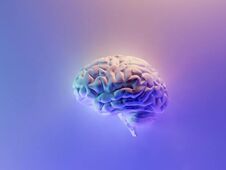






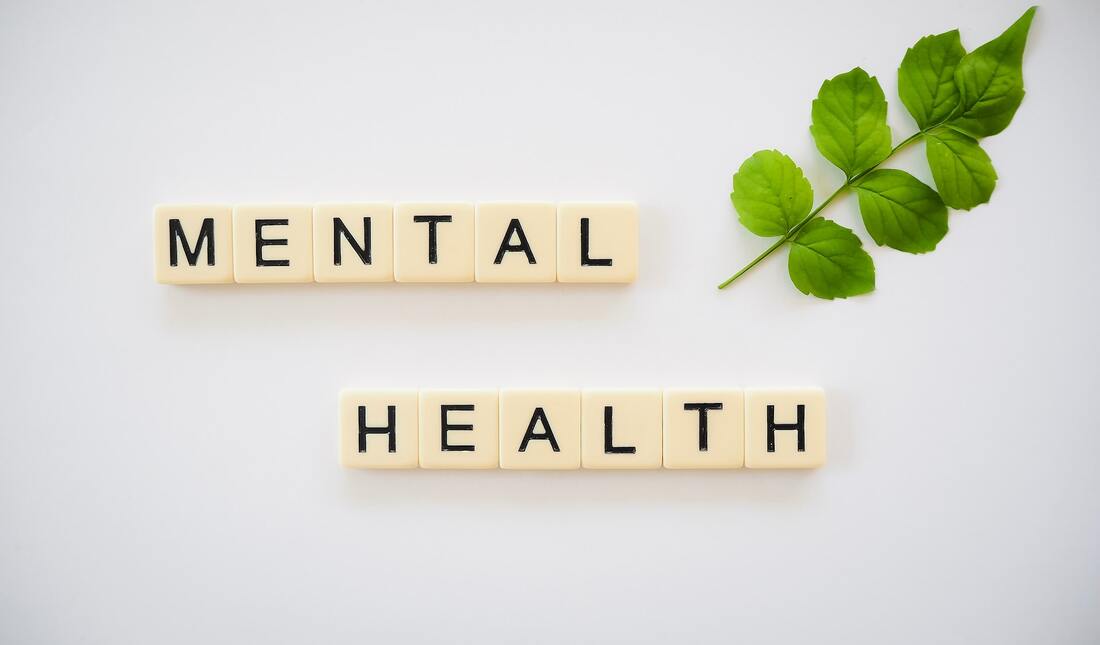






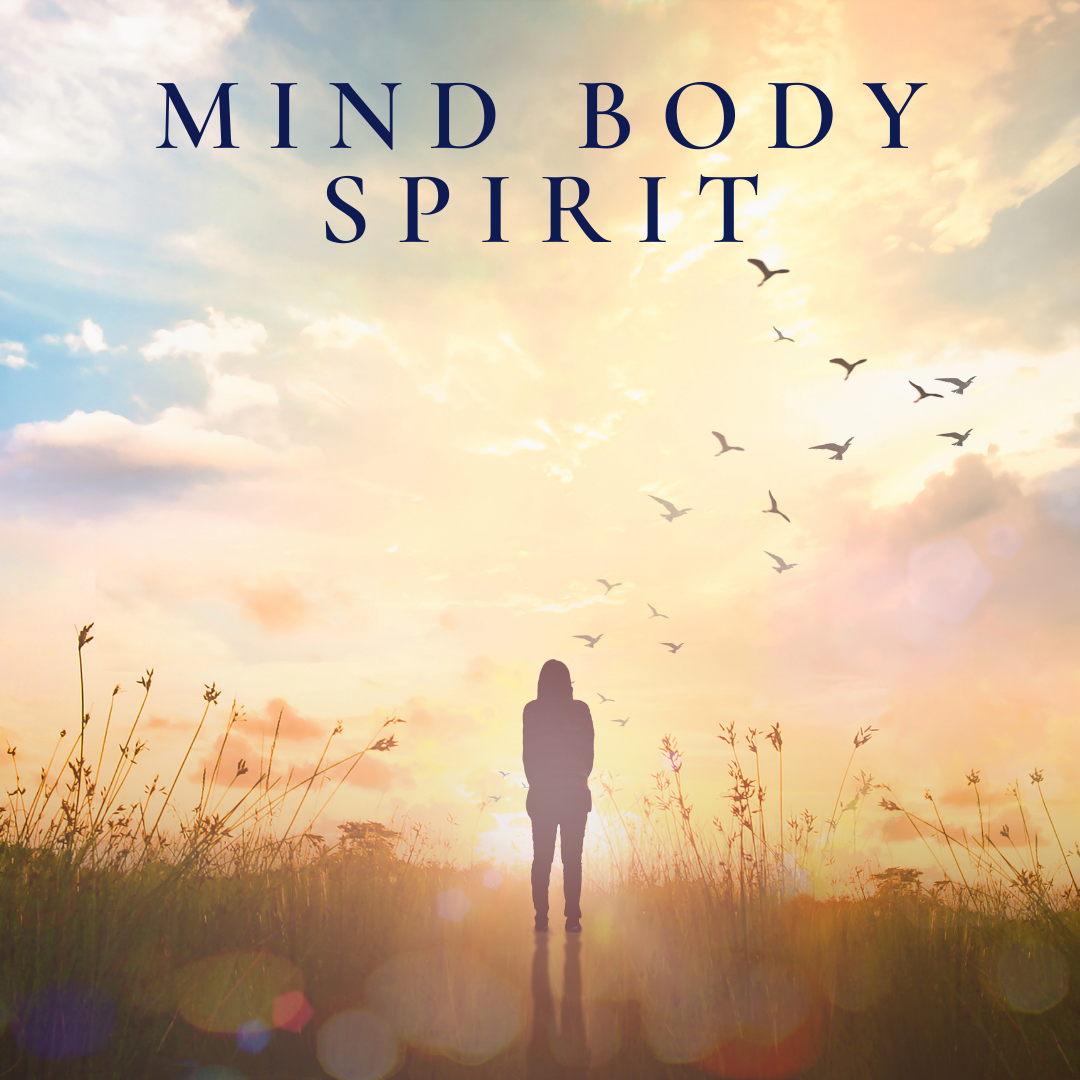

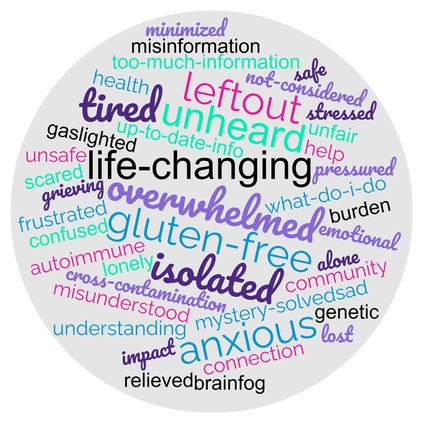


 RSS Feed
RSS Feed
